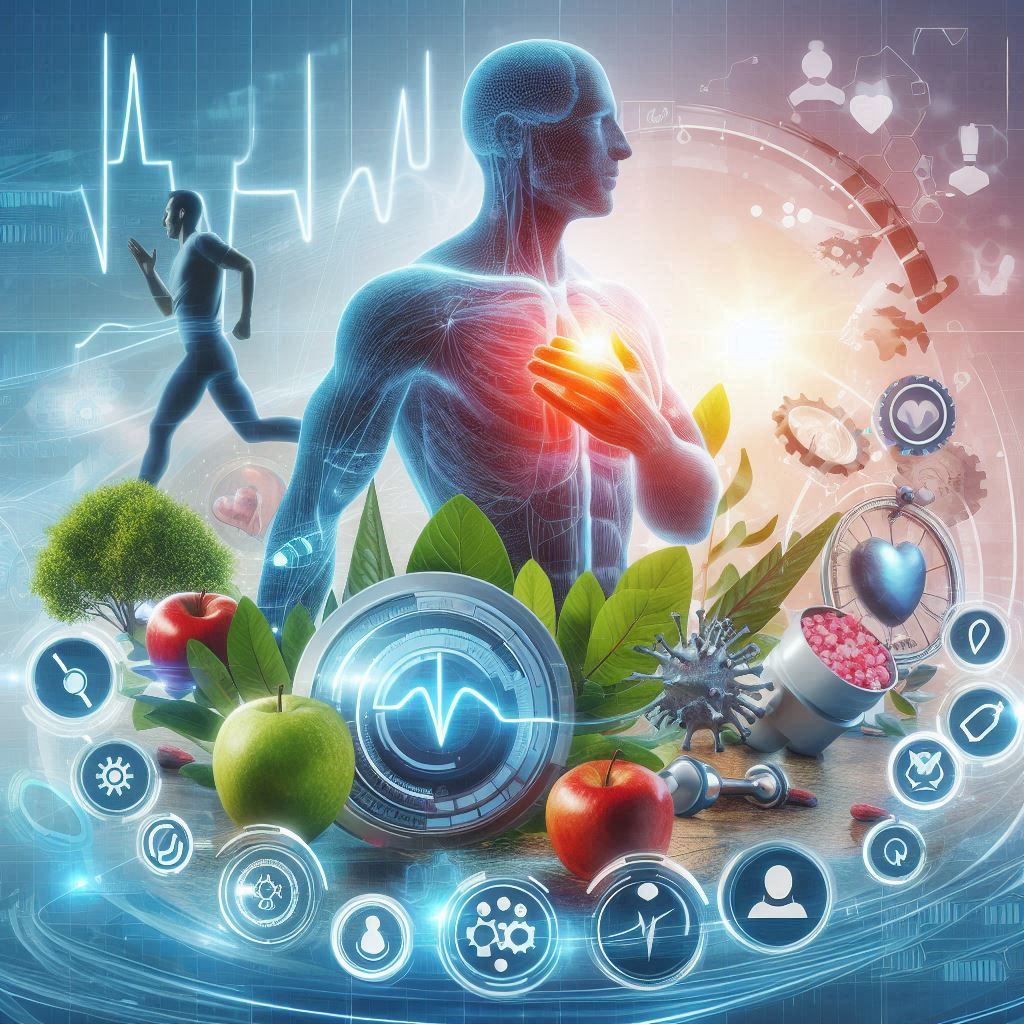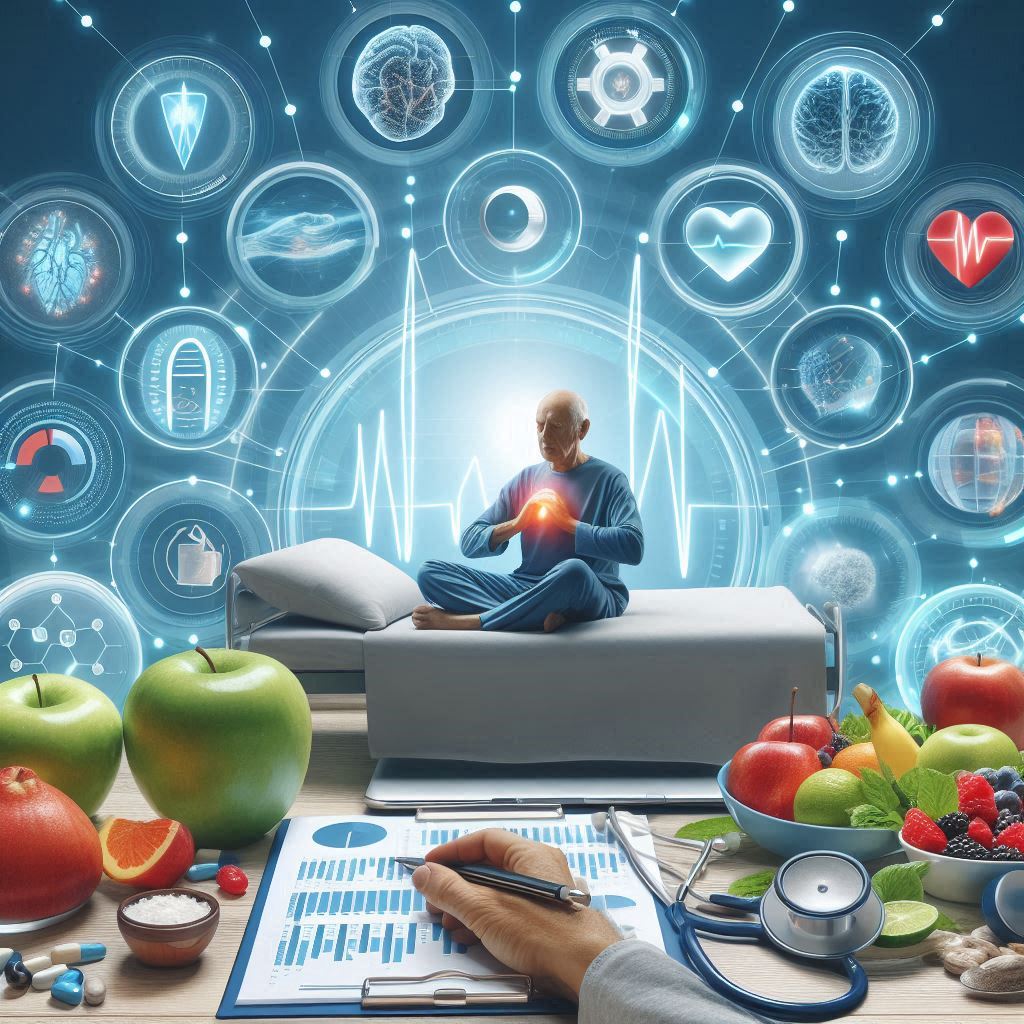Comprehensive Health Monitoring: Strategies for Optimal Well-Being
Introduction
In today’s fast-paced world, maintaining optimal health can be challenging. Comprehensive health monitoring is key to staying on top of your well-being. By utilizing a range of strategies and tools, individuals can better understand their health status, prevent potential issues, and achieve a balanced lifestyle. This article explores various methods for comprehensive health monitoring and provides actionable insights to enhance overall well-being.
The Importance of Comprehensive Health Monitoring
Comprehensive health monitoring involves regularly tracking various aspects of health to identify potential issues early. This proactive approach is essential for:
- Early Detection: Identifying health issues before they become severe.
- Preventive Care: Implementing lifestyle changes to prevent disease.
- Personalized Health Management: Tailoring health strategies to individual needs.
Key Components of Health Monitoring
To effectively monitor your health, focus on the following key components:

| Component | Description | Examples |
|---|---|---|
| Physical Health Metrics | Monitoring key health indicators such as blood pressure, heart rate, and body mass index (BMI). | CDC Blood Pressure Guidelines |
| Fitness Tracking | Using devices or apps to track physical activity, exercise routines, and overall fitness levels. | Fitbit, Apple Watch |
| Nutritional Monitoring | Tracking dietary intake and ensuring a balanced diet to meet health goals. | USDA Food Data Central |
| Sleep Analysis | Monitoring sleep patterns and quality to ensure adequate rest and recovery. | Sleep Foundation |
| Mental Health Monitoring | Assessing emotional well-being and stress levels through various tools and practices. | MentalHealth.gov |
Strategies for Effective Health Monitoring
1. Utilize Wearable Technology
Wearable devices such as fitness trackers and smartwatches provide real-time data on various health metrics. These devices can:
- Track Physical Activity: Monitor steps, distance, and calories burned.
- Measure Heart Rate: Keep track of heart rate variability and resting heart rate.
- Monitor Sleep Patterns: Analyze sleep stages and quality.
For more information, visit Wearable.com.
2. Implement Regular Health Screenings
Regular health screenings are essential for early detection of potential issues. Key screenings include:
- Blood Tests: Check for cholesterol levels, blood sugar, and other biomarkers.
- Imaging Tests: Utilize X-rays, MRIs, or ultrasounds for internal health evaluation.
- Cancer Screenings: Perform mammograms, colonoscopies, and other cancer-specific tests.
For guidelines on screenings, visit American Cancer Society.
3. Monitor Dietary Intake
Maintaining a balanced diet is crucial for overall health. Tools for dietary monitoring include:
- Food Diaries: Keep track of daily food intake and nutritional value.
- Nutrition Apps: Use apps to log meals and analyze nutrient intake.
For tips on healthy eating, refer to Choose My Plate.
4. Engage in Mental Health Practices
Mental health is as important as physical health. Strategies include:
- Meditation and Mindfulness: Practice meditation to reduce stress and enhance focus.
- Counseling and Therapy: Seek professional help for mental health challenges.
- Stress Management: Implement techniques such as yoga or deep-breathing exercises.
Explore mental health resources at National Alliance on Mental Illness (NAMI).
Case Studies and Success Stories
Many individuals and organizations have successfully utilized comprehensive health monitoring to improve well-being. Here are a few notable examples:
FAQs: Comprehensive Health Monitoring
1. What is comprehensive health monitoring?
Answer: Comprehensive health monitoring refers to a holistic approach to tracking various aspects of an individual’s health. This includes physical metrics such as heart rate, blood pressure, and BMI, as well as lifestyle factors like diet, sleep, and mental well-being. The goal is to provide a complete picture of health to support proactive management, early detection of issues, and personalized care strategies.
Related Resources:
2. What are the key benefits of using health monitoring devices?
Answer: Health monitoring devices offer several key benefits, including:
- Early Detection: Devices can help identify potential health issues before they become serious.
- Personalized Health Management: They provide data that allows for tailored health and lifestyle recommendations.
- Motivation: Tracking progress in real-time can motivate individuals to maintain or improve their health habits.
- Better Disease Management: Continuous monitoring can improve the management of chronic conditions by providing ongoing feedback.
Related Resources:
3. How can comprehensive health monitoring improve disease management?
Answer: Comprehensive health monitoring improves disease management by:
- Providing Real-Time Data: Continuous data collection allows for real-time adjustments in treatment and lifestyle.
- Tracking Symptoms: Monitoring tools can track symptoms and detect changes early, prompting timely medical intervention.
- Supporting Adherence: Regular feedback helps individuals stay committed to treatment plans and lifestyle changes.
- Facilitating Communication: Data can be shared with healthcare providers for more informed discussions and decisions.
Related Resources:
- National Institutes of Health – Managing Chronic Diseases
- American Diabetes Association – Technology for Diabetes Management
4. What are the potential risks associated with health monitoring devices?
Answer: The potential risks include:
- Privacy Concerns: Personal health data may be vulnerable to breaches or unauthorized access.
- Inaccurate Data: Devices may provide inaccurate readings, leading to incorrect health assessments.
- Over-Reliance: Relying too heavily on devices might lead to neglecting professional medical advice.
- Cost: High-quality devices and services can be expensive, potentially limiting access.
Related Resources:
5. How can I choose the right health monitoring device for my needs?
Answer: When selecting a health monitoring device, consider the following factors:
- Accuracy: Look for devices with verified accuracy through independent testing or clinical validation.
- Features: Choose a device that offers the specific features you need, such as heart rate monitoring, sleep tracking, or activity logging.
- Ease of Use: Ensure the device is user-friendly and fits into your daily routine.
- Cost: Consider your budget and weigh it against the features and benefits of the device.
- Integration: Check if the device integrates with other health apps or systems you use.
Related Resources:
6. Are there privacy concerns with health monitoring apps?
Answer: Yes, there are several privacy concerns with health monitoring apps:
- Data Security: Health data stored on apps may be vulnerable to hacking or unauthorized access.
- Data Sharing: Apps may share data with third parties, potentially compromising privacy.
- Informed Consent: Users must be aware of how their data is used and ensure they consent to data sharing policies.
Related Resources:
- Federal Trade Commission – Protecting Your Privacy
- Electronic Frontier Foundation – Privacy and Health Apps
7. How often should I use health monitoring tools?
Answer: The frequency of use depends on the type of monitoring and individual health goals:
- Daily Monitoring: For fitness trackers, daily use provides consistent feedback on physical activity and sleep.
- Regular Check-Ups: For devices that track chronic conditions, follow your healthcare provider’s recommendations on how often to use them.
- As Needed: Use devices as needed based on specific health concerns or symptoms.
Related Resources:
8. Can health monitoring devices replace traditional medical consultations?
Answer: No, health monitoring devices should not replace traditional medical consultations. While these devices provide valuable data, they do not replace the need for professional medical evaluations. Devices should be used as complementary tools to enhance communication with healthcare providers and support overall health management.
Related Resources:
9. What should I do if I notice an abnormal reading on my health monitoring device?
Answer: If you notice an abnormal reading:
- Verify the Reading: Ensure that the device is used correctly and check for any potential user errors.
- Consult a Healthcare Provider: Share the data with your healthcare provider for a professional assessment and further investigation.
- Avoid Panic: While abnormal readings can be concerning, they may not always indicate a serious issue. Professional evaluation is essential for accurate diagnosis and treatment.
Related Resources:
10. How can I integrate health monitoring into my daily routine?
Answer: To integrate health monitoring into your daily routine:
- Set Goals: Establish clear health goals and use monitoring tools to track progress towards these goals.
- Create a Schedule: Incorporate health monitoring tasks, such as measuring blood pressure or logging meals, into your daily routine.
- Use Alerts and Reminders: Many devices and apps offer reminders to help you stay on track with monitoring activities.
- Review Data Regularly: Regularly review your data to make informed decisions and adjust your health strategies as needed.
Related Resources:
11. What are the limitations of health monitoring technology?
Answer: Limitations of health monitoring technology include:
- Accuracy Issues: Devices may not always provide accurate readings or may vary in reliability.
- Data Interpretation: Understanding and interpreting health data can be complex without professional guidance.
- Technical Issues: Devices and apps may experience technical problems, such as connectivity issues or software glitches.
- Cost: High-quality monitoring devices can be costly and may not be affordable for everyone.
Related Resources:
Disclaimer and Caution
Disclaimer
The information provided in this article on comprehensive health monitoring is for educational and informational purposes only. While every effort has been made to ensure the accuracy and reliability of the content, it is important to acknowledge the following:
- Not a Substitute for Professional Medical Advice:
- The information contained herein is not intended to replace or substitute for professional medical advice, diagnosis, or treatment. Always seek the advice of your physician or other qualified health provider with any questions you may have regarding a medical condition or health-related concern.
- Accuracy and Reliability:
- Although we strive to provide accurate and up-to-date information, health monitoring technologies and practices are constantly evolving. The effectiveness and reliability of health monitoring devices can vary, and results may not always be consistent. Consult with healthcare professionals for the most current and personalized recommendations.
- Health Monitoring Devices:
- Health monitoring devices and applications are tools that can assist in tracking various health metrics. However, they are not infallible and may have limitations in accuracy and interpretation. Always use these tools as a supplementary resource rather than a primary diagnostic or treatment tool.
- Privacy and Data Security:
- The handling of personal health data involves privacy and security risks. While we discuss general practices, it is crucial to review the privacy policies of specific devices and applications to understand how your data is collected, used, and protected.
- External Links:
- This article contains links to external websites and resources. These links are provided for convenience and informational purposes. We do not endorse or guarantee the accuracy, reliability, or content of these external sites. Always review and verify information from external sources independently.
Caution
- Consult Healthcare Providers:
- Before making any significant changes to your health routine based on the information or recommendations provided, consult with your healthcare provider. Personalized medical advice is crucial for addressing individual health conditions and needs.
- Device Limitations:
- Be aware of the limitations of health monitoring devices. Devices may not be suitable for everyone, and some may have limitations in their functionality or accuracy. Follow the manufacturer’s instructions and guidelines for use, and consult with a healthcare provider if you have concerns about the device’s performance.
- Interpreting Data:
- Interpreting health data from monitoring devices requires expertise. Data provided by these tools should be reviewed in conjunction with professional medical evaluations. Misinterpretation of data could lead to unnecessary anxiety or inappropriate health decisions.
- Regular Updates:
- Health monitoring technology and guidelines can change frequently. Ensure that you stay informed about updates and advancements in health monitoring tools and practices. Regularly review and update your health management strategies with the help of healthcare professionals.
- Emergency Situations:
- In case of a medical emergency or severe health symptoms, seek immediate professional medical assistance. Health monitoring devices are not designed to diagnose or treat emergencies and should not be used as a substitute for urgent medical care.
- Data Accuracy and Reliability:
- The accuracy of data provided by health monitoring devices can vary. Variations in measurements may occur due to factors such as device calibration, user technique, and external conditions. Regularly verify results with healthcare professionals to ensure accurate health assessments.
- Mental Health Monitoring:
- If using health monitoring tools for mental health tracking, be cautious of the potential impact on your well-being. Self-monitoring should be complemented by professional mental health support if needed. The data from these tools should not replace professional diagnosis or treatment for mental health conditions.
- Cost Considerations:
- Consider the cost of health monitoring devices and services. While these tools can offer valuable insights, they may involve financial investment. Evaluate the cost relative to the potential benefits and ensure that you are making informed decisions based on your budget and health needs.
By acknowledging and adhering to these disclaimers and cautions, you can make informed decisions about incorporating comprehensive health monitoring into your lifestyle while ensuring that you seek appropriate professional guidance and support.


